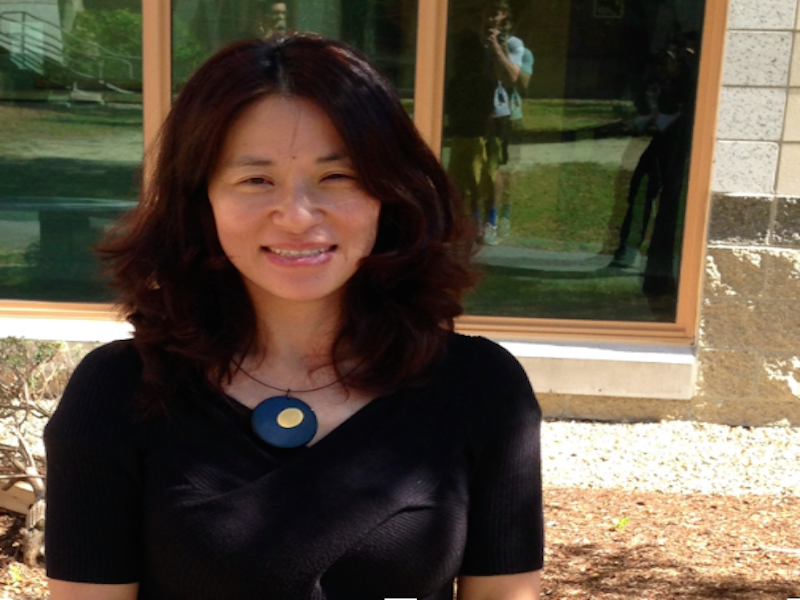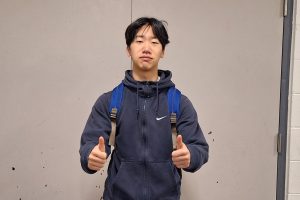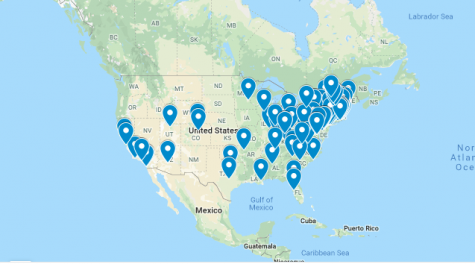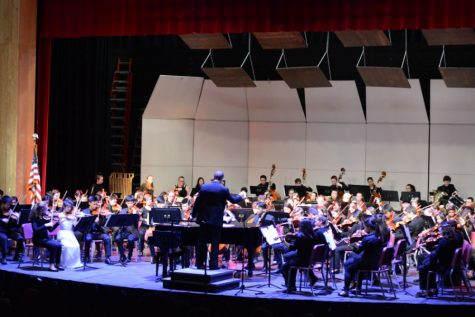Introducing Ms. Li
October 19, 2015
While Westford Academy opens its doors to the class of 2019, new faces can be spotted in the hallways and classrooms belonging to students from all over Massachusetts, or even all over the United States. Along with this influx of teenagers, one might also notice unfamiliar faces in the teachers’ lounge, or behind the desks. Among these appears Westford Academy’s newest mandarin teacher, Ms. Li. We had the chance to speak with her after her first few weeks of teaching.
Q: Have you taught Mandarin before?
A: Yes I did, I grew up in China, and then I majored in education. My bachelor’s degree is in education, so I taught after graduation at Western China University of Medical Sciences. It’s one of the top medical schools in China. I taught English to Chinese medical students and then Chinese to foreign doctors who were visiting China. So, I taught four years there, and then I went to school in Auburn in Alabama. After I got my master’s degree, I moved to Vermont, where I lived with my family. There, I taught Chinese in Vermont for seven years, and then also for family, I moved to Massachusetts two weeks ago. So, it was very nice. I got a job here, and am very happy to work here; there are very nice kids, and it’s a nice community.
Q: So at what age did you move from China to the US?
A: When I was twenty-seven.
Q: A large cultural change, I could imagine?
A: Yes, I enjoyed it, people were very friendly.
Q: How about in terms of cultural tolerance? The U.S is still a little behind on accepting foreign cultures, did you have any problems with that?
A: No. I think Auburn University is a huge, big university, and they had hundreds of international students. They had about two hundred chinese international students, so I didn’t have any culture shock. They understood different cultures, and I stayed with an American professor. She lived by herself, and so she rented rooms to international students every year. That year, I was lucky and the room was available, so I stayed with her. Her dad was in the navy, so she had traveled to different places. So that was a great environment for me for the first year. I was surrounded by people who were very open minded, and learned different cultures.
Q: So what made you decide to come to WA, or Massachusetts for that matter?
A: My husband got a job in Andover, and we learned about Acton because of the good schools, and from there, found Westford. By chance, I just looked up on the website, and thought ‘oh they have mandarin!’ At the time they didn’t have any openings, but I just thought ‘wow, I really like Wesford, if only I could get this job…’ and at that moment, I just said ‘there’s no way, because the program had just developed.’ I was very lucky, so I went for an interview, and I’m very glad I made that decision to come here. Even though it’s only been two weeks, I really enjoy working with the students.
Q: How different of a dialect is mandarin from regular Chinese?
A: There are more than one hundred dialects in China, so it’s not like accents where people from the South can hear the accent from the people in the North. It’s just a totally foreign language. So I can’t communicate with the people in Shan-Hai. You might have heard of Shanghainese; it’s one of the major dialects in China. So they speak totally differently from other people. For example, my husband is from the North, and I’m from the South, and we cannot communicate unless we speak mandarin. Because we speak more than one hundred different dialects in China, the government created, back in the 50’s I think, a common speech called mandarin. So that’s what’s taught to American students here at school. Mandarin is based on Northern, Beijing dialect, so it’s easier for Northern people to learn Mandarin than people from my home town. But we learned it when we were in the first grade, and it’s easier to learn when you’re young.
Q: How do you think learning Mandarin will benefit WA students?
A: I think chinese culture is getting more and more important. And also, China has the longest history; one of the oldest civilizations on earth. So I think our culture is very interesting. The food, the ethnic groups- we have fifty-six ethnic groups in China, so I think that’s very interesting to learn. Also, China has a huge demand to learn English, so it gives students the opportunity to do internships, or even just teach in China in the future. I usually don’t mention the economy, but the economy in China has become the second largest in the world. So I think learning Chinese, the language and the culture, definitely gives students advantage for their futures or careers.
Q: So, the teaching style has been changing a lot at WA, recently with new technology especially. Do you find that your teaching has changed at all?
A: Not really, it’s only been two weeks, but my teaching style changed a lot from Chinese to American. I had to change a lot when I moved to Vermont. That was a very good learning experience for me, because Americans have different styles. I learned more about American students, and their different learning styles, and I changed the way I teach more. I don’t teach to the text, I like to incorporate culture, so I like to include culture and foreign affairs.
Q: What are these key differences between American and Chinese teaching?
A: China has the largest population on earth, so the education system is more competitive than here. Because there are limited colleges you can go to so people have to try harder to get in. This is because of the college entrance exam. This isn’t like an SAT. You can only take it once a year and only up to three times. Kids train their whole lives to be able to pass the exam by taking long multiple choice question tests. Beijing and Shanghai are starting to change it up, but throughout most of China it is like this. Americans are more creative. They still work very hard but in a different way. You learn the creative teaching style. Not just reading the books and taking notes and tests. I changed a lot based on the different culture. So I started letting the students make Chinese movies and others creative projects. It’s their favorite part of the class; making the story, recording it, and doing the edit.
Q: What made you want to become a teacher and how long did you want to become a teacher?
A: I think because my personality; I’m outgoing and love students. My first time teaching was a year after college. I taught college students. So my students were three or four years younger than me. And because it was a medical school, I also taught kids older than me. I really liked it. My students were my friends.
















